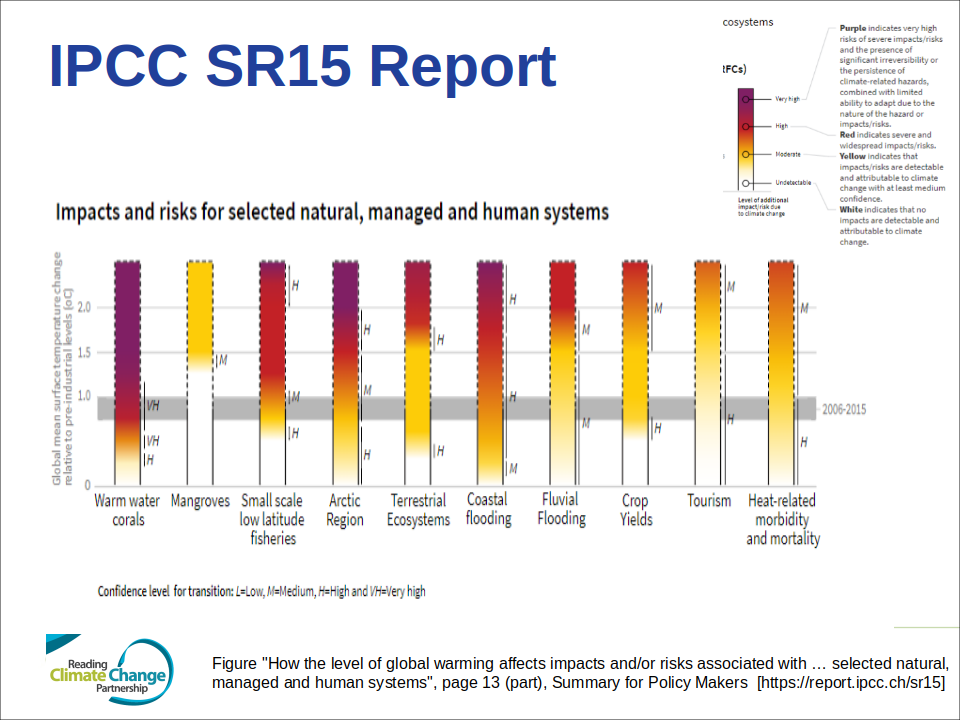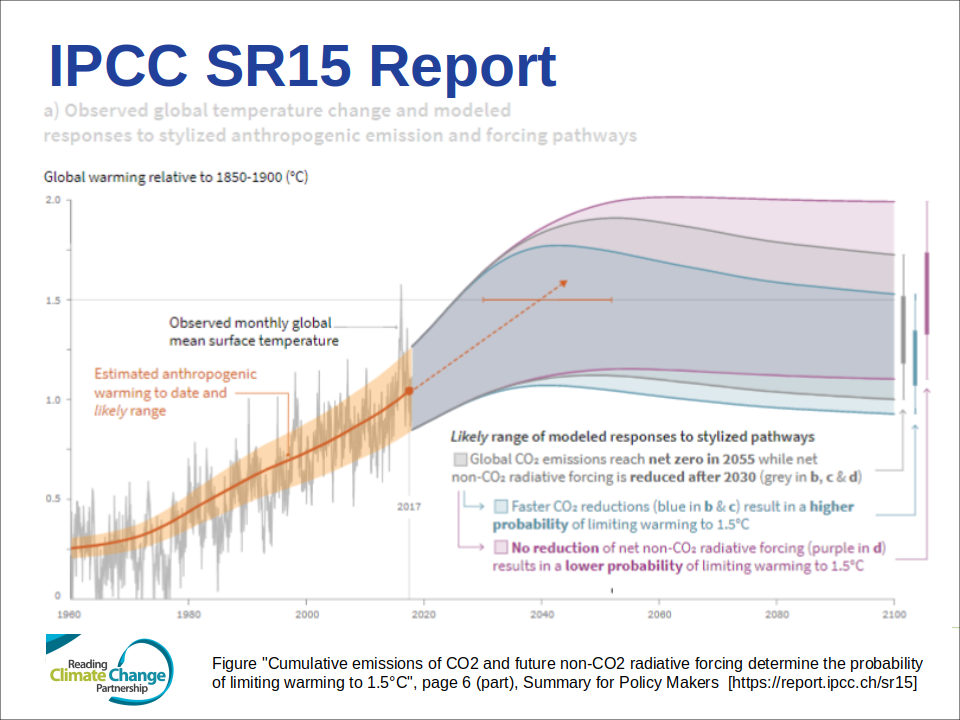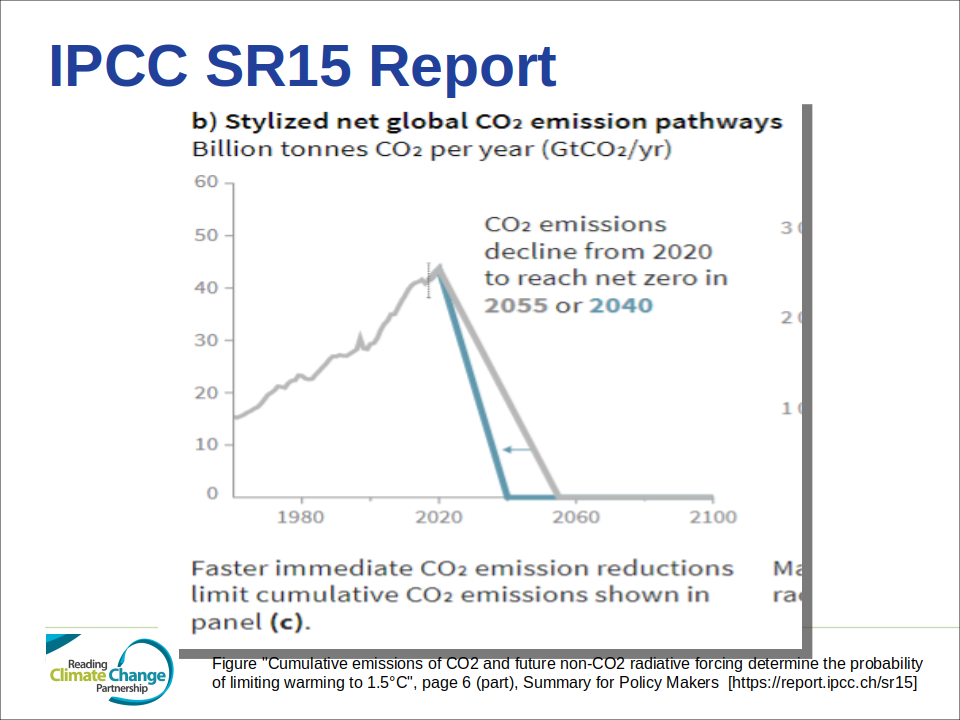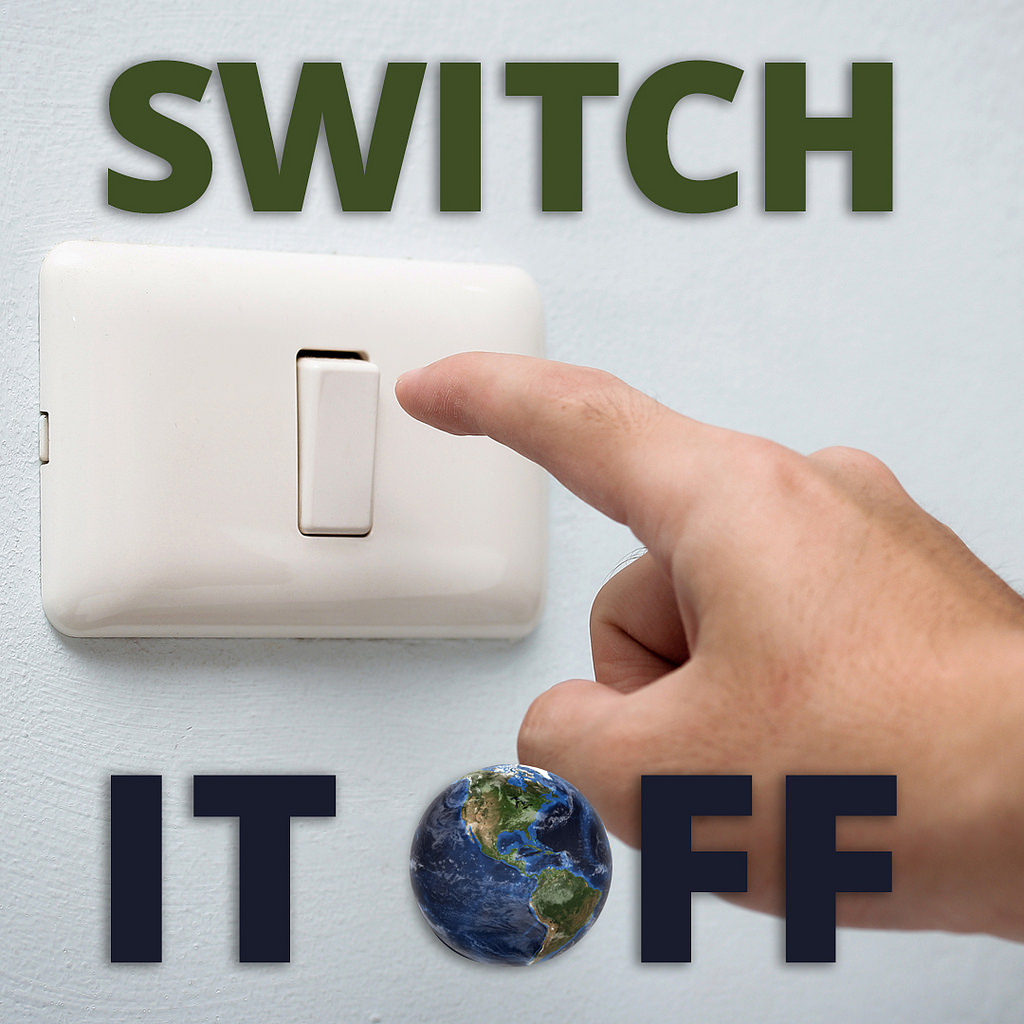The IPCC SR15 was released on 8 October 2018 with the strong messages that we have only 12 years to limit global warming to 1.5 degC.
Consequences

Particular concerns for us in Reading, from those issues highlighted, include:
- Flooding
- Crop yields – with impacts on food availability / cost
- Extreme heat – with potential for heat-related deaths
- Knock on effects from other parts of the world that are exposed to more of highlighted risks
Notice that global temperatures have already risen by 1 degC, and we are already seeing the extreme weather events associated with this level of warming.
Mitigation pathways

It is sobering to notice that our current trajectory is to hit 1.5 degC by 2040. It doesn’t have to be that way though, and SR15 details how we can reduce emissions to meet the 1.5 degC target.

Reflecting on this graph: there is a massive job that we need to do…not least to fundamentally change the political and economic focus towards tackling this.
- Happily we have a start with the Zero Carbon Reading work that Reading Borough Council have done
- There is reason to be optimistic about the UK (see Emissions pages (chrisbeales.net)) if we can regain our focus
- Whatever happens though we need to get ready to adapt to the changing climate…and the less we do to cut emissions, the harder this is going to be.
Chris Beales, RCCP Chair, Oct 2018
- For a bit of background about the science, and where these reports come from see About Climate Change (on chrisbeales.net).
- The SR15 report is published here: https://report.ipcc.ch/sr15 – it is advisable to start with the Summary for Policy Makers.
- An easier to read summary is presented by Climate Home News: 37 things you need to know about 1.5C global warming


